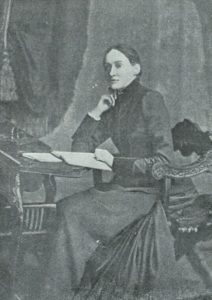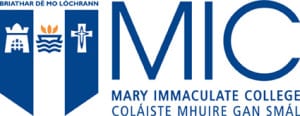Research Pioneers
Research Pioneers in Irish Women’s Writing: An Interview Series
Anna Pilz & Whitney Standlee
Since the 1990s, scholarship on Irish women’s writing has made some significant strides in recovering forgotten authors and texts. Thanks to pioneering work by researchers such as Patricia Coughlan, Heidi Hansson, John Wilson Foster, Margaret Kelleher and James H. Murphy, we have begun to see developments that conceptualise and offer new frameworks for researching and understanding Irish women’s writing of the period between 1880 and 1920.
Evidence of the surge in interest in Irish women’s writing came recently during a conference staged by the International Association for the Study of Irish Literatures, which celebrated its 50th anniversary at Trinity College Dublin in July 2019. This conference brought together a global community of scholars to reflect on the topic of ‘Critical Ground’. During thought-provoking roundtable discussions such as “Displacing the Canon” and “Feminist Wonder? Twenty-First Century Interventions in Irish Studies”, important questions were raised about the need to diversify the teaching syllabus, revisit categories such as the ‘Irish writer’ and what we might mean by it, and opening out the field of Irish Studies to include transdisciplinary, transnational and multi-lingual approaches. With digitisation projects of archival materials on the rise, access to primary resources and previously untapped critical texts are increasingly available to enable new directions in the scholarship of Irish women’s writing.
Yet where we seem to take ten steps forward, there is all too often a push-back. A telling example of this came in 2017, when the Cambridge Companion to Irish Poets, edited by Gerald Dawe, caused controversy for its appalling gender imbalance by including the work of only four females among a total of thirty poets overall. Most notable perhaps was the fact that all the females whose poems were selected for publication in the Cambridge Companion were born in the twentieth century.
It is thus important to engage in an ongoing process of reflecting on the historiography of Irish women’s writing and revisiting the motivations for recovering women’s voices. The continued relative scarcity of attention to women’s literary works in textbooks, scholarly research and literary anthologies invites us to consider which questions we are still grappling with and where new avenues of research have or might yet be opened up for scholarship.
Looking back at the research and recovery efforts of those who have gone before is an imperative process in continuing to respond to the need for greater visibility of and accessibility to Irish women’s writing of the 1880 to 1920 period. This is precisely the reason that, in this series of interviews, we are asking pioneering scholars to share the challenges and opportunities they saw and continue to see in this lively research field.
Anna Pilz & Whitney Standlee
- Research Pioneers 1: John Wilson FosterResearch Pioneers in Irish Women’s Writing: An Interview Series Introduction Since the 1990s, scholarship on Irish women’s writing has made some significant strides in recovering forgotten authors and texts. Thanks to pioneering work by researchers such as John Wilson Foster, Patricia Coughlan, Heidi Hansson,…
- Research Pioneers 2: Heather Ingman and Clíona Ó Gallchoir2018 saw the landmark publication of Heather Ingman and Clíona Ó Gallchoir’s A History of Modern Irish Women’s Literature. Featuring 22 chapters that address women’s writing from the early modern period to the present, the volume makes a rich intervention not only in Irish…
- Research Pioneers 3: James H. MurphyFrom the period of his earliest publications, James H. Murphy has been involved in the process of recovering and re-examining largely forgotten Irish works. As one reviewer noted of his Catholic Fiction and Social Reality in Ireland, 1873-1922 (1997), Murphy’s work is consistently the…
- Research Pioneers 4: Heidi HanssonHeidi Hansson’s edited collection New Contexts: Re-Framing Nineteenth-Century Irish Women’s Writing (2007) has been praised by reviewers for its call for the field of literary studies to be augmented and for ‘addressing women’s literature as a “distinct tradition”’. Together with her monograph Emily Lawless…
- Research Pioneers 5: Lucy CollinsLucy Collins’ Poetry by Women in Ireland: A Critical Anthology 1870-1970, published by Liverpool University Press in 2012, has made a crucial intervention in the field of Irish women’s literary history. As one reviewer described it, it reveals ‘a hitherto hidden history of poetry’…
- Research pioneers 6: Gerardine MeaneyThe publication in 2002 of The Field Day Anthology of Irish Writing: Women’s Writing and Traditions volumes 4 and 5 was a watershed moment in Irish literary history. Gerardine Meaney was among the principal co-editors of this endeavour, which evolved in response to the…
- Research Pioneers 7: Margaret KelleherMargaret Kelleher’s first monograph on The Feminization of Famine and her co-edited volume on Gender Perspectives in Nineteenth-Century Ireland, both published in 1997, had gender questions at the very heart of her research. Her seminal work interrogated questions of tradition and canonicity in such…
- Research Pioneers 8: David Clare, Fiona McDonagh and Justine NakaseDavid Clare, Fiona McDonagh and Justine Nakase are in the final stages of a project that promises to be a milestone in scholarship on women’s contribution to Irish theatre. They are co-editing the weighty two-volume collection The Golden Thread: Irish Women Playwrights (1716-2016), forthcoming…
- Research Pioneers 9: Elke D’hokerIn 2011, Elke D’hoker co-edited a ground-breaking collection of essays entitled Irish Women Writers: New Critical Perspectives (Peter Lang). Seminal in the field, this work helped to shape the critical framework of Irish women’s writing and acted to lead the way for future researchers….
- Research Pioneers 10: Mary S. PierseMary S. Pierse edited, in 2010, the pioneering Irish Feminisms, 1810-1930 (Routledge). In these five volumes, she brought together 180 documents from a variety of genres that invite enticing and creative connections between historical documents, periodical press contributions, and literary texts. ‘The scale of…
- Research Pioneers 11: Julie Anne StevensJulie Anne Stevens is the leading expert in Irish literary studies on the works of the cousins Edith Somerville and Martin Ross. With two monographs on these collaborators – The Irish Scene in Somerville and Ross (2007) and Two Irish Girls in Bohemia: The…
- Research Pioneers 12: Tina O’TooleTina O’Toole has been recognised as a leading scholar in Irish women’s studies since her first full-length published work, the Dictionary of Munster Women Writers, emerged in 2005 and added important names to the growing list of Irish women writers who had long been…
- Research Pioneers 13: Kathryn LaingKathryn Laing has a career-long research expertise in women’s writing and Irish women’s writing in particular. Her wide-ranging publications focus on the works of Hannah Lynch, Rebecca West, Virginia Woolf, and Edna O’Brien. Together with Faith Binckes, she’s co-written the study Hannah Lynch, 1859-1904:…



